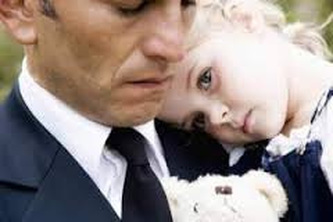
Death is a natural part of life. This being said, death is the seldom discussed in an authentic way with children. There are many reasons for this. Some parents and caregivers are afraid of distressing the child. Other parents and caregivers are not comfortable with talking about death themselves. Some parents and caregivers are not sure how to go about discussing it with a child and are afraid of “doing the wrong thing”.
Every child is different, every parent and family situation is different. The following are simply guidelines to help parents and caregivers have honest conversations with children in terms of death and dying. They are guidelines that are offered to assist and enhance your own intuitive knowledge of what is right or wrong to do in your unique situation.
If you want to discuss your own circumstances before speaking to a child, or you have specific questions please contact us by emailing us at [email protected] .
Prior to a death of a loved one, normalize death as a part of life. Take opportunities within nature to point out the natural process of birth, growth, death as they are evident.
If there is an illness that is going on, letting the child be a part of the process of caring for the ill loved one can give opportunity for conversation not only about the illness but what happens after the illness if it is potential to end in death.
At the time of death
After the death, have someone who is close to the child tell the child as soon as possible after there is a death. Children sense behaviors and attitudes of adults. Even if no one says anything, children can sense something is wrong. Without proper information, they will often times try to assess what the problem is from their own limited knowledge. Often times this knowledge is self-oriented, and the child will think that the reason something is wrong is because of something they have done.
After the death, it is ok to allow the child be present for the funeral if they wish to be. This will help the child put closure to the death, by giving reference to refer to, if the child later asks questions about where their loved one is.
Be honest with your own emotions. Sometimes people try not to cry in front of the children. This can reinforces a false perception in the children that it is not ok to cry if we are sad or have had a loss.
Be honest in your responses to questions. Try to avoid euphemisms such as they are sleeping. This can be confusing to the child as to why the person doesn’t just wake up then.
The child should be encouraged to talk about what they are feeling and allowed to ask questions which should be answered as truthfully as possible.
Every child is different, every parent and family situation is different. The following are simply guidelines to help parents and caregivers have honest conversations with children in terms of death and dying. They are guidelines that are offered to assist and enhance your own intuitive knowledge of what is right or wrong to do in your unique situation.
If you want to discuss your own circumstances before speaking to a child, or you have specific questions please contact us by emailing us at [email protected] .
Prior to a death of a loved one, normalize death as a part of life. Take opportunities within nature to point out the natural process of birth, growth, death as they are evident.
If there is an illness that is going on, letting the child be a part of the process of caring for the ill loved one can give opportunity for conversation not only about the illness but what happens after the illness if it is potential to end in death.
At the time of death
After the death, have someone who is close to the child tell the child as soon as possible after there is a death. Children sense behaviors and attitudes of adults. Even if no one says anything, children can sense something is wrong. Without proper information, they will often times try to assess what the problem is from their own limited knowledge. Often times this knowledge is self-oriented, and the child will think that the reason something is wrong is because of something they have done.
After the death, it is ok to allow the child be present for the funeral if they wish to be. This will help the child put closure to the death, by giving reference to refer to, if the child later asks questions about where their loved one is.
Be honest with your own emotions. Sometimes people try not to cry in front of the children. This can reinforces a false perception in the children that it is not ok to cry if we are sad or have had a loss.
Be honest in your responses to questions. Try to avoid euphemisms such as they are sleeping. This can be confusing to the child as to why the person doesn’t just wake up then.
The child should be encouraged to talk about what they are feeling and allowed to ask questions which should be answered as truthfully as possible.
|
|
If Link Does Not Click, Just Cut And Paste Link Desired Into Browser The Dougy Center-Children's Grief Support http://www.dougy.org/ The Dougy Center provides support in a safe place where children, teens, young adults, and their families grieving a death can share their experiences. The Dougy Center provides support and training locally, nationally and internationally to individuals and organizations seeking to assist children in grief. The Center is supported solely through private support from individuals, foundations and companies. The Dougy Center does not charge a fee for its services. The Solace Tree- Grief During The Holidays- For Grieving Kids, Teens, and Families http://www.solacetree.org/resources/grieving-during-the-holidays/ |